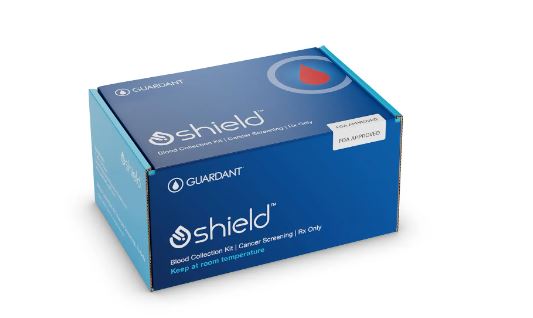The Food and Drug Administration (FDA) recently approved a new blood test for colorectal cancer screening, known as Shield, developed by Guardant Health, a company based in Palo Alto, California. This test represents a significant advancement in cancer diagnostics, offering a less invasive and more convenient alternative to traditional screening methods like colonoscopies and fecal tests. Shield’s key advantage lies in its simplicity and accessibility, as it requires only a blood sample, which can be easily collected during a routine physical exam at a doctor’s office or a commercial laboratory.
The introduction of Shield is expected to address a critical public health issue: increasing the rates of colorectal cancer screening. Despite current guidelines recommending that individuals begin screening at age 45, a significant portion of the population—between 25% to 50%—does not adhere to these recommendations. The Shield test aims to make screening more accessible and less daunting, potentially encouraging more people to participate.
The test works by detecting fragments of DNA that are shed into the bloodstream by cancer cells and large polyps. Large polyps are clumps of cells on the lining of the colon that can occasionally develop into cancer. In clinical trials, the Shield test demonstrated a high success rate, identifying 87% of early-stage colorectal cancers. This is particularly significant because early detection greatly improves the chances of successful treatment.
However, the Shield test has some limitations. One of the main concerns is its relatively low accuracy in detecting large polyps. While colonoscopies are highly effective, identifying 95% of these precancerous growths, Shield only detects about 13%. This limitation means that although the blood test can help increase overall screening rates, it may not completely replace more thorough methods like colonoscopies. Patients who receive a positive result from the Shield test are advised to undergo a follow-up colonoscopy to confirm the presence of cancer or polyps and to remove them if necessary.
Another consideration is the test’s false positive rate, which stands at around 10%. This means that some individuals may receive a positive test result even though they do not have cancer or large polyps. Despite this, the FDA advisory committee that recommended the test’s approval emphasized the potential benefits of making screening more accessible and less intimidating for patients. The committee noted that the ease of the Shield test could encourage more people to get screened, thereby helping to prevent a significant number of colorectal cancer cases and related deaths.
Guardant Health has indicated that the Shield test will be available within a week following the FDA’s approval. The company is expected to announce the test’s pricing soon. For those covered by Medicare Part B, the test should be available at no additional cost, according to Matt Burns, a spokesperson for Guardant Health. For individuals with commercial insurance or Medicare Advantage plans, the out-of-pocket costs will vary based on their specific coverage.
The FDA’s approval of the Shield test marks a promising development in the early detection of colorectal cancer. While the test has some limitations, its potential to increase screening rates and detect cancer early could have a significant impact on reducing the number of deaths from colorectal cancer. As the Shield test becomes more widely available and public awareness grows, it is hoped that more people will take advantage of this new screening option, potentially saving many lives through earlier detection and treatment.

